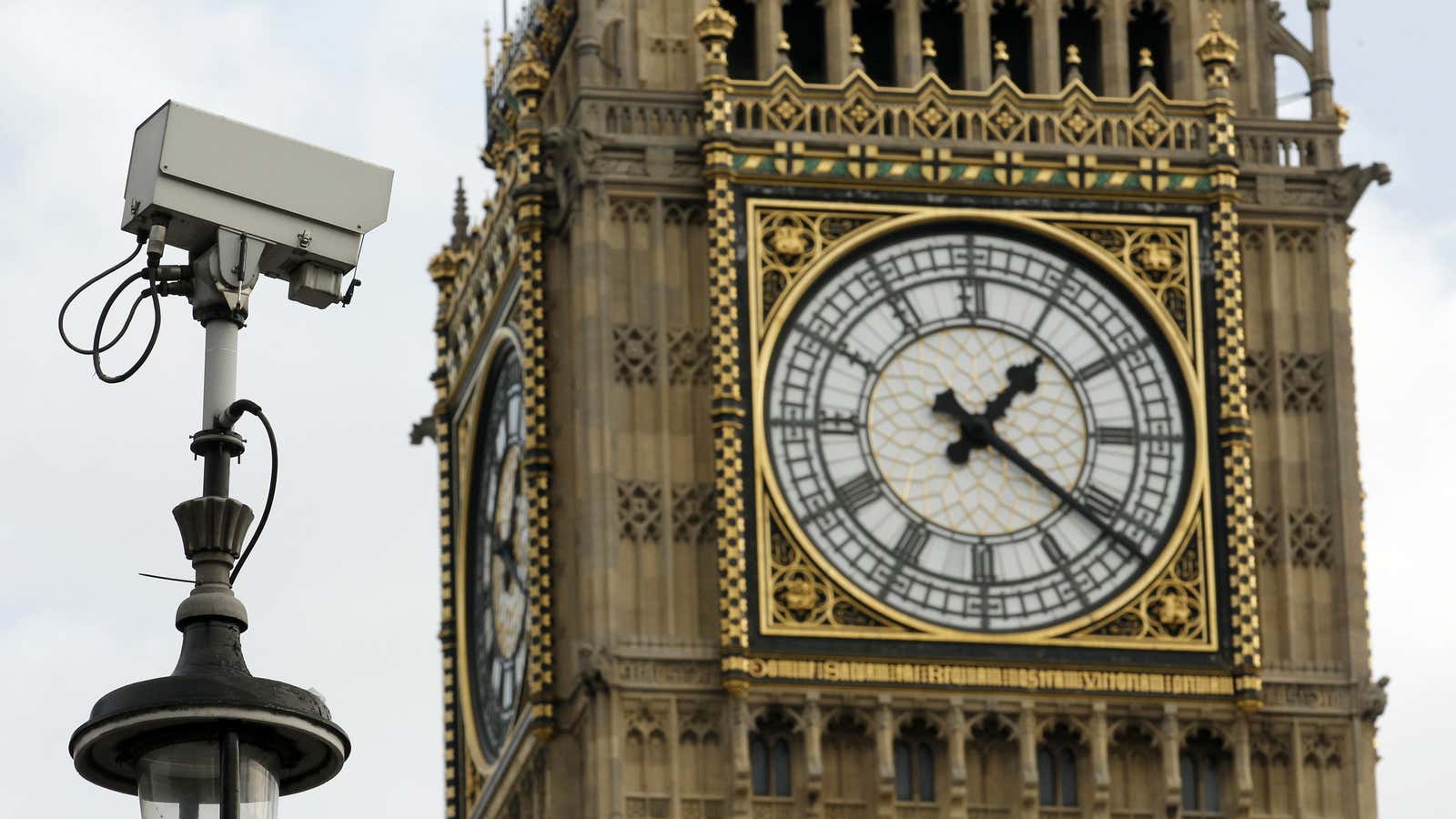The United Nations official in charge of privacy matters has warned the United Kingdom that its draft law on surveillance, which allows for bulk data interception and government hacking, would have “negative ramifications far beyond” its shores.
UK laws still hold sway over Commonwealth countries, which make up a quarter of UN member states, said the UN’s special rapporteur on the right to privacy, Joseph Cannataci. The UK bill “undermines the spirit of the very right to privacy,” Cannataci said. He has called the draft law “worse than scary” in remarks at a conference in Brazil in Oct. 2015.
The UN official presented his first annual report (doc) to the body’s Human Rights Council in Geneva today (Mar. 9). The UK draft law, known as the Investigatory Powers bill, was highlighted in the report as one of the most important global privacy-related issues in the last year. “It would appear that the serious and possibly unintended consequences of legitimizing bulk interception and bulk hacking are not being fully appreciated by the UK government,” Cannataci said.
US tech giants Apple and Google have attacked the UK law while it has been under review in the last three months by a pre-legislative parliamentary committee. They have said it would allow the UK to intercept data stored outside the country. Three other parliamentary committees and various activist groups also have slammed it.
The government has changed the draft law accordingly, publishing the updated version on March 1. But there remains “serious concern” about the revisions, Cannataci said. Privacy International, a non-profit that has opposed the bill, said changes in the revised draft “are not even cosmetic” because provisions for bulk surveillance and hacking remain in place.
Cannataci recommended that UK parliamentary committees who weighed in on the bill continue to “exert their influence” on the legislation with “renewed vigor.” The bill is due for a debate in parliament next week (Mar. 15). Legislators opposed to the draft law will surely find today’s scathing evaluation from the UN useful.
